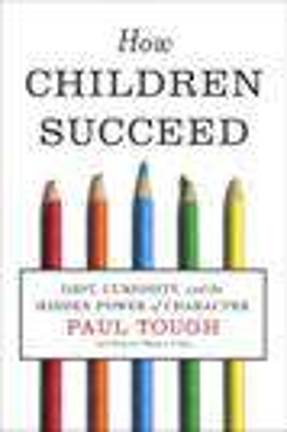The Case for Character: New Book Reports on Ways Traits Like Grit and Curiosity Help in School

by Tali Rosenblatt-Cohen A journalist with long-time gigs as an editor at Harper's and the New York Times magazine, NYC dad Paul Tough has spent much of his career thinking, reporting, and writing about education. In his first book, [Whatever It Takes: Geoffrey Canada's Quest to Change Harlem and America](http://www.amazon.com/Whatever-It-Takes-Geoffrey-Canadas/dp/0618569898), Tough chronicles the challenges and triumphs of the famous Harlem Children's Zone. His new book is called [How Children Succeed: Grit, Curiosity, and the Hidden Power of Character](http://www.amazon.com/How-Children-Succeed-Curiosity-Character/dp/0547564651/ref=sr_1_1?s=books&ie=UTF8&qid=1343756246&sr=1-1&keywords=How+Children+Succeed%3A+Grit%2C+Curiosity%2C+and+the+Hidden+Power+of+Character). In part, it grew out of his reporting on kids from low-income neighborhoods. But it also became personal. "I had my son, Ellington, who is now three," says Tough, "and I found myself wondering about this question as a parent as well: What do you do to help your child succeed? Your book makes the case that non-cognitive skills (which you call "character"), even more than academic achievement, are the key to long-term success. Can you define non-cognitive skills for our readers? The phrase comes from economists and, in particular, a Nobel Prize-winning economist from the University of Chicago, James Heckman. He started using this phrase about ten years ago to explain what he was seeing in his data. He found that there were certain kids who scored low on IQ tests but would go on to succeed, or who would score high on IQ tests but not go on to succeed. As he looked deeper into the data, he identified these other skills that seemed to determine success. Some of the skills have to do with self-regulation, like conscientiousness and self-control. Some of them have to do with optimism, curiosity, zest-basically wanting to explore new things. And grit and perseverance are another set-they're about intensity, sticking with something, bouncing back from failure. In lots of ways, I find "character" a more accurate or evocative term for these skills because it gets at how important they are. They are a really deep part of what it means to be human. What do you think is the role of parents in ensuring children's success? At this particular moment we're living in, there's a lot of anxiety among parents about how to help our children succeed. I think New York parents care very deeply about this question, but I also think we hear a lot of conflicting messages, and so we feel confused-not just about how to help our kids succeed, but about what kind of success we really want for them. What I took away from the research I read is that parents are critically important to a child's development, more important than anything else, but that the elements of parenting we've come to believe are most important are often at odds with reality. Especially in wealthier neighborhoods, I think we put way too much emphasis on cognition and intelligence and test scores. There is this idea that IQ and academic skills are the best predictors of a child's success-in fact, that they're the only good predictors-and so there's this intense pressure around tests at every stage of life, from preschool to LSATs, and [surrounding] admissions to the right schools. But what the research says is that, in fact, the most important thing we can do to help our kids develop the skills they need to succeed is to give them close, nurturing support in the first years of their lives. That makes a huge difference in how they do later on. Now, where things get complicated is that as kids get older, they need something very different from us. They need less support. They need us to let them fail, to let them figure things out for themselves, to let them be more independent and solve their own problems. And what the research doesn't tell us is exactly when and how we're supposed to switch from one style of parenting to the other. That's a real challenge for parents. You place a lot of importance on the first few years and parent-child attachment. Should we now be worried about a kind of backlash against trends like early enrichment programs, where everyone shifts from an extreme focus on academic performance to an intense anxiety about connection? I do worry about stoking parental anxiety, but I hope the book will encourage parents to relax rather than freak out. To me, what the research on attachment implies is that most children need a basic level of love and security and nurturance. Studies on attachment indicate that 60 percent of American one-year-olds display a secure attachment with their parent or parents. That's a pretty big group. Attachment, the way I see it, is not a way to produce super-children; it's about providing enough love and attention that your children wind up in the secure 60 percent. You can make a lot of mistakes as a parent (as we all do) and still get it right. And if you get it right, your child has a big advantage starting out. To read the full article at New York Family Magazine [click here. ](http://www.newyorkfamily.com/the-case-for-character/)